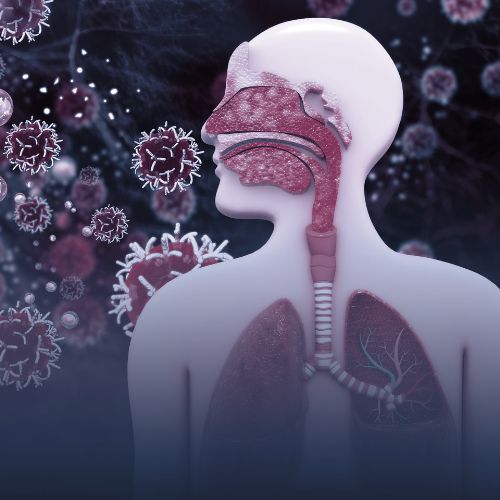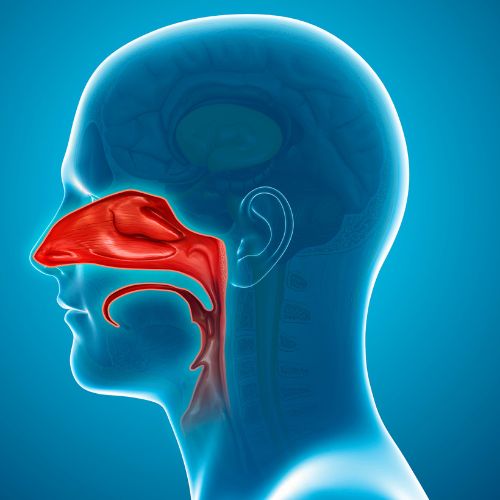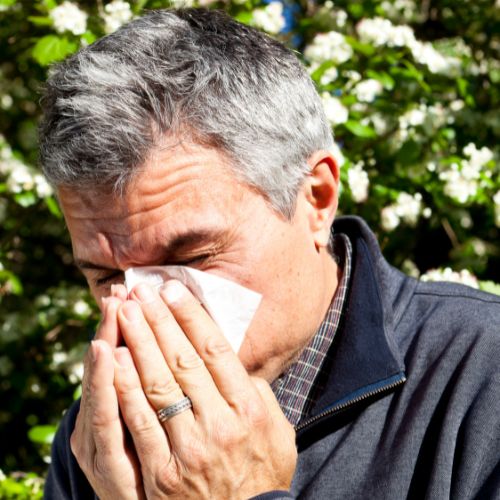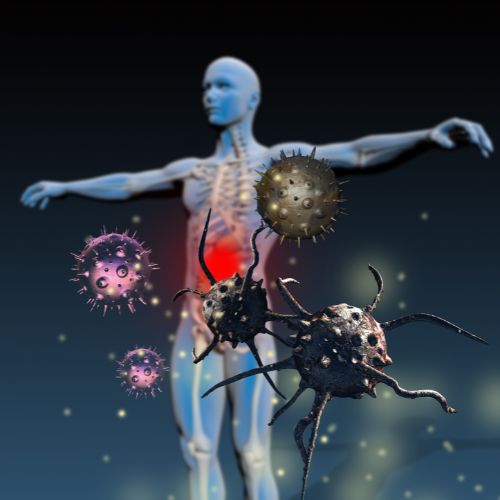Ayurvedic Panchakarma therapy offers a holistic approach to address chronic sinusitis by enhancing immunity, purifying the system from toxins (ama), and restoring metabolic balance. The Pranavaha Srotas, crucial channels for respiratory health, are strengthened and cleansed using potent herbal medicines.
A key component of this therapy is Nasya, also known as Shiro Virechna. Here, a unique blend of herbs, oils, and herbal powders is gently administered through the nostrils. This stimulates mucus secretion, effectively dissolving and loosening accumulated mucus in the nasal and sinus passages.
Complementing Nasya is nasal steam inhalation, a simple yet effective practice. Inhaling steam twice daily helps alleviate congestion in the sinus passages. To enhance this treatment, a single-drop mixture of camphor and menthol can be added to the steam, providing additional relief during sinus infections.

Dhumpana with Haridra churnam is another powerful element of Ayurvedic care. This involves inhaling medicated smoke, specifically with Haridra churnam. This process significantly reduces Kapha in the sinuses and clears nasal passages.
Sinusitis, an ailment that affects the intricate network of sinuses in your face, unfolds as an inflammation or swelling of the sinus lining. These sinuses, usually filled with air, play a crucial role in maintaining the health of your respiratory system. However, when faced with bacterial infections, viral intrusions, or allergic reactions, these sinuses can become irritated, leading to blockages and the accumulation of fluid. This, in turn, triggers a cascade of symptoms, encompassing facial pressure, nasal congestion, and discomfort.
Commonly referred to as rhinosinusitis, sinusitis targets the four paired cavities in your head, connected by narrow passages. These structures actively produce mucus, a vital fluid that aids in the cleansing of nasal passages, ridding them of bacteria, allergens, and other pathogens. The drainage of this mucus is pivotal for maintaining a clean and germ-free environment in the nasal passages.
Sinusitis doesn’t present itself as a uniform condition; rather, it manifests in various forms based on its duration and underlying causes. Whether it’s acute, subacute, chronic, or recurrent, the categorization helps in understanding the temporal aspect of the condition. Additionally, the classification based on causative agents—bacteria, virus, or fungus—further refines our comprehension of sinusitis, enabling tailored approaches to its management.







Environmental allergens such as pollen, dust, or pet dander can lead to sinusitis. Allergic reactions prompt the body to produce excess mucus, blocking sinus openings

Small, non-cancerous growths in the nasal passages can obstruct normal sinus drainage, causing fluid accumulation and fostering sinusitis.

A crooked or deviated nasal septum can impede proper airflow, creating an environment conducive to sinus infections.

Exposure to pollutants, smoke, or other irritants can irritate the nasal passages, triggering inflammation and contributing to sinusitis development

Infections or dental problems affecting the upper teeth can extend to the sinuses, causing infection and inflammation

Individuals with weakened immune systems are more susceptible to sinusitis as their bodies may struggle to fend off infections effectively
Ayurvedic Panchakarma therapy is a holistic approach that aims to treat chronic sinusitis by enhancing immunity, purifying the body of toxins (ama), and restoring metabolic balance. It strengthens and cleanses the Pranavaha Srotas, the vital channels for respiratory health, using potent herbal medicines.
Nasya, also known as Shiro Virechna, is a key component of Ayurvedic treatment for sinusitis. It involves administering a blend of herbs, oils, and herbal powders through the nostrils. This stimulates mucus secretion, dissolving and loosening accumulated mucus in the nasal and sinus passages, thereby relieving congestion.
Nasal steam inhalation is a complementary practice in Ayurvedic treatment for sinusitis. Inhaling steam twice daily helps alleviate congestion in the sinus passages. Adding a mixture of camphor and menthol to the steam can provide additional relief during sinus infections.
Dhumpana with Haridra churnam involves inhaling medicated smoke containing turmeric powder (Haridra churnam). This practice significantly reduces Kapha (mucus) in the sinuses and clears nasal passages, helping to alleviate symptoms of sinusitis.
Common symptoms of sinusitis include facial pain or pressure, nasal congestion, runny nose, coughing, and headache. Causes of sinusitis include respiratory infections, allergies, nasal polyps, a deviated septum, airborne irritants, dental issues, and immune system compromises. Sinusitis can be triggered by bacterial, viral, or fungal infections and may present as acute, subacute, chronic, or recurrent based on its duration and underlying causes.